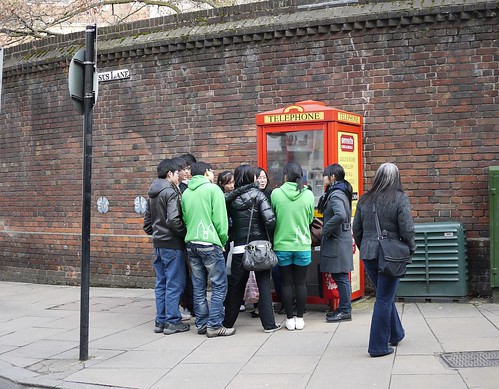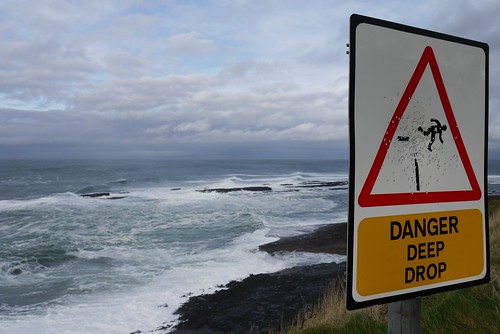Nice NYTimes column by Nicholas Kristof.
In 1986, Col. Muammar el-Qaddafi gave an interview to a group of female foreign journalists. Then he invited them, one by one, into a room furnished with just a bed and television and propositioned them.
They rebuffed him, and after three successive rejections he got the message and gave up. But the incident reflects something important about Colonel Qaddafi that is worth remembering today: He’s nuts.
The Libyan “king of kings” blends delusion, menace, pomposity, a penchant for risk-taking — and possession of tons of mustard gas. That’s why it’s crucial that world powers, working with neighboring countries like Egypt and Tunisia, steadily increase the pressure while Colonel Qaddafi is wobbling so that he leaves the scene as swiftly as possible.
Unfortunately, Mr. Qaddafi has gained a bit of ground in the last few days, at least in the capital of Tripoli. He has used mercenaries to terrorize people and even drag injured protesters out of hospitals, so a sullen calm has returned to Tripoli for now.
Kristof tells an interesting story about how Libyan military figures are equivocating about what they should do.
On Saturday, when I was in Egypt and it looked as if the Qaddafi government might collapse at any time, I had a call from Tripoli: A senior Libyan military officer who had been ordered to attack rebel-held towns was defecting to the rebels instead. The officer wanted me to report his defection — along with his call for other military officers to do the same — and he had already recorded a video of his defection that I could post immediately on the New York Times Web site.
I was delighted but asked what preparations he had made to protect his family from retribution. None, it turned out.
I urged the officer to hide his family to ensure that his wife and children weren’t kidnapped or killed in retaliation. A bit later, I heard back that the officer would accept the risk to his family. I suggested that the officer think this through carefully one more time — and this time the officer actually consulted his wife, who was displeased. The officer sheepishly postponed the announcement of his defection temporarily.
In the days since then, with Colonel Qaddafi having gained ground in Tripoli, the defection no longer seems to be on the table.
His argument is that if the West stays firm and continues to treat Gaddafi as a busted flush, eventually the military will switch.




